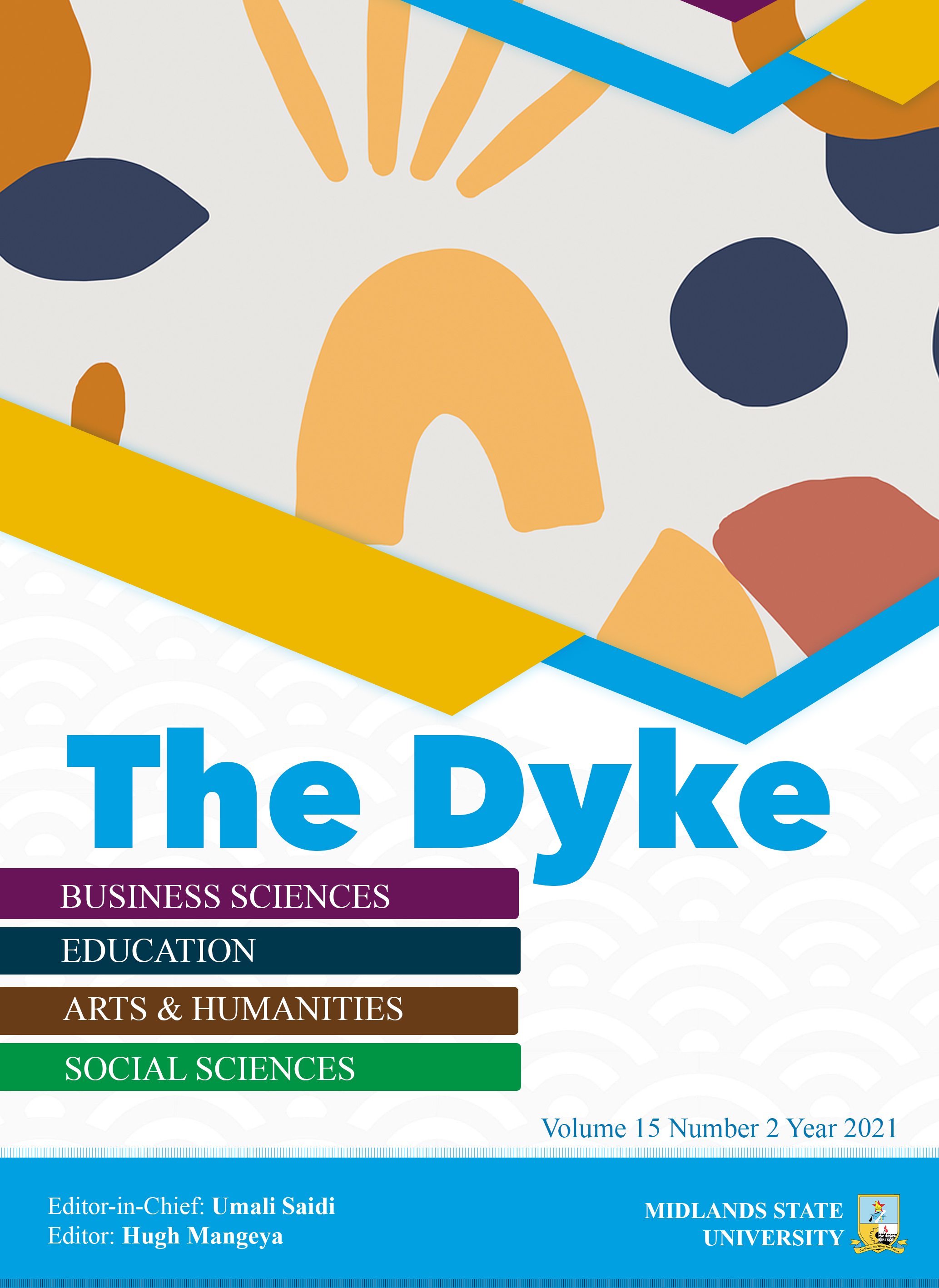Inclusion’ through professional ‘exclusion’: A phenomenon of preservice visually impaired teachers in tertiary institutions
DOI:
https://doi.org/10.64754/thedyke.v15i2.32Keywords:
inclusive education, professionalism, esoteric, standards.Abstract
The number of visually impaired students enrolled in higher education institutions is on the rise, and yet, teaching, learning and assessment remain an area of particular concern to their inclusion. In Zimbabwe, the curriculum for higher education institutions has been crafted to offer equal access, and relevance, to all students but, it seems there is considerable confusion where administrators and lecturers in teacher-training feel unprepared, and unequipped to have visually impaired students in an inclusive class. Resultantly, pre-service visually impaired trainee teachers seem to be systematically left raw in teacher professional standards development. This
qualitative study, therefore, explores the experiences of visually impaired pre-service trainee teachers in Zimbabwe teacher training institutions. Multiple case study designs were adopted to facilitate data triangulation. A sample of 30 participants comprising administrators, lecturers and visually impaired pre-service trainee teachers was purposively drawn from inclusive teacher training institutions. Data was generated through semi-structured interviews and document analysis. It emerged from the study that, the instructional approaches used to convey the content, the curricular materials and the assessment mechanism were esoteric and visually impaired pre-service trainee teachers were not professionally equipped with teacher professional standards. It is recommended that tertiary institution administrators and lecturers must continuously be trained in inclusive education practices so as to equip them with the requisite skills and knowledge to meet the diverse professional standard needs and interests of the visually impaired pre-service trainee teachers.

Downloads
Published
How to Cite
Issue
Section
License
All articles in The Dyke are published under the Creative Commons Attribution 4.0 International License (CC BY 4.0).
Under this licence:
- Others may copy, redistribute, remix, transform, and build upon the work for any purpose, even commercially.
- Appropriate credit must be given to the original author(s) and source (The Dyke), along with a link to the license.
- Any changes made must be indicated.
Full licence details: https://creativecommons.org/licenses/by/4.0/
Archiving and Preservation
The Dyke supports long-term preservation of scholarly work through partnerships with digital repositories and indexing services, including Sabinet African Journals. Authors are also encouraged to deposit a copy of their published article in institutional or subject-specific repositories.




